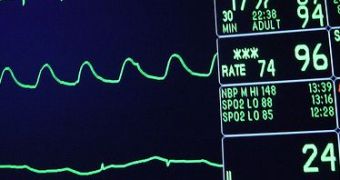A team of researchers from The Children's Hospital of Philadelphia carried out a study that shows that heart bypass for unsophisticated heart interventions does not affect children's neurocognitive functions. The results were published in the August issue of Pediatrics.
This research was made on school-aged children that suffered cardiopulmonary bypass (CPB), after surgery for acyanotic heart deficiencies. The acyanotic heart defects are less severe and less complex than heart defects for which surgery during infancy is necessary, and they include abnormal heart valves or a hole between the heart's chambers. The intervention seems not to affect patients' neurocognitive abilities like memory, intelligence, behavior and motor skills.
Michael Quartermain, M.D., pediatric cardiologist and primary investigator of the study said: “Most previous studies of the neurocognitive effects of CPB for pediatric heart surgery have focused on surgery during infancy for complex congenital heart disease. Those children often have multiple risk factors for cognitive decline, such as genetic syndromes, abnormal brain development and the need for multiple operations. We decided to minimize those confounding factors by focusing on a group of asymptomatic older children with isolated heart disease, and the results are encouraging.”
Scientists compared 35 children, aged 5 to 18, experiencing open-heart surgery in less complicated congenital heart problems with 19 non-cardiac surgery patients and 12 non-surgical control patients. They went through several neuropsychological tests like the evaluation of motor skills, memory, intelligence, attention and behavior, in all children, before and six months after surgery. Results gave no difference between groups undergoing bypass and control group.
“Cardiopulmonary bypass has long been implicated as a causative factor in abnormal neurocognitive outcomes after cardiac surgery,” explained Dr. Quartermain. “However, in this study which controlled for the non-bypass effects of open-heart surgery, there was no significant decrease in neuropsychological status in these children and adolescents six months after surgery.”
He also said that even if further studies and investigations will be made on this matter, physicians should reassure the families of children or adolescents to undergo acyanotic heart interventions. The Children's Hospital of Philadelphia recently launched the NeuroCardiac Care Program, where children and their families are examined by a pediatric neurologist, pediatric cardiologist, developmental pediatrician, a speech and language pathologist, physical and occupational therapists, a dietician and social worker.

 14 DAY TRIAL //
14 DAY TRIAL //